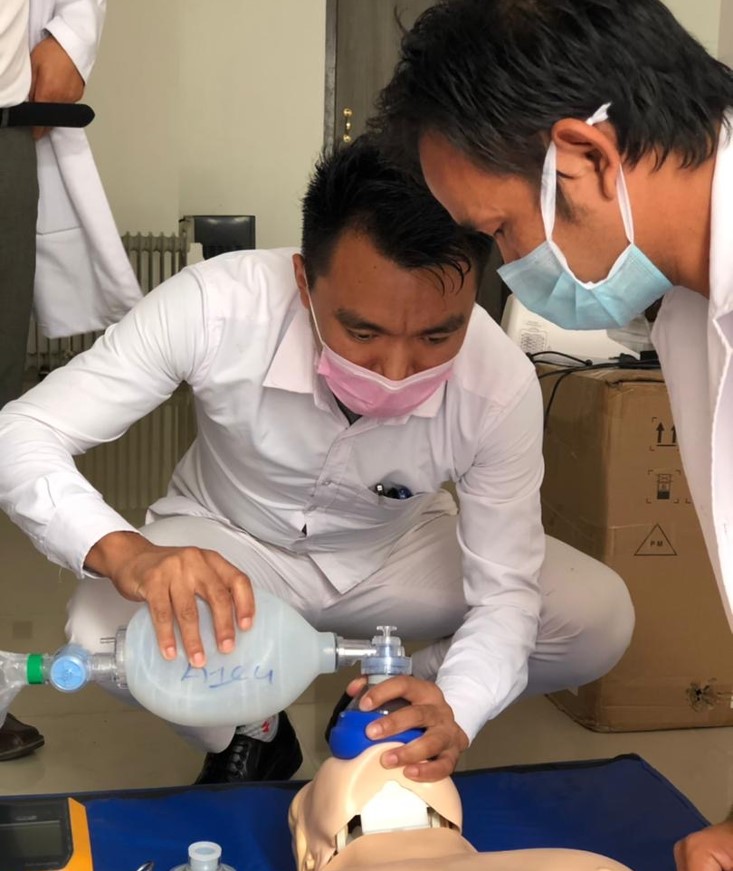Tashi Dendup, Consultant, Save the Children Bhutan
Karma Doma Tshering, Project Manager, Save the Children Bhutan
Sumita Taneja, Program Director, FHI 360
Bhutan is a small Himalayan country located in Southeast Asia. Health care services are delivered free of cost by the state through a health system built upon a primary health care foundation. Since Bhutan’s first reported COVID-19 case on March 6th, 2020, the country has endured two nationwide lockdowns. As of June 1st, 2021, 1,632 cases have been confirmed. With just one COVID-19-related death and a recovery rate of around 81%, Bhutan has been able to avert the devastating impact of the pandemic, at least so far. More recently, though, cases have started to increase again in the districts bordering India.
In an effort to supplement Bhutan’s COVID-19 response efforts, the Meeting Targets and Maintaining Epidemic Control (EpiC) project, with support from USAID, collaborated with the Ministry of Health of Bhutan to conduct two trainings of trainers (ToT) on basic ICU management of COVID-19 patients at the Jigme Dorji Wangchuck National Referral Hospital in April. Adult COVID-19 case management training curricula developed by EpiC and University of California San Francisco (UCSF) experts were adapted to local context for the ToT.
Local critical care experts facilitated the training with assistance from a critical care specialist from the University of California San Francisco. More than 20 health workers including nurses, physicians, and anaesthesiologists were trained as master trainers to deliver the COVID-19 case management training. The objectives of the training were to equip participants with knowledge and skills for safe, accurate, and prompt care of patients diagnosed with COVID-19 and prepare participants to conduct cascade training with other providers from their facilities. Job aids on critical care and mini precaution posters developed with the support of the project were also provided to the participants during the training.
Post-ToT, master trainers are leading the rollout of the training program in their respective health facilities. Since April 2021, 155 doctors and nurses have been trained on emergency critical care for COVID-19 by these master trainers. These skills-based trainings are being scaled-up and by September 2021, more than 300 doctors and nurses will be trained across the country. Bhutan now has a pool of local experts that can help deliver critical care capacity-building programs even after the project ends. This investment is expected to not only help the Ministry of Health to effectively respond to threats posed by the current COVID-19 pandemic but will also go a long way in strengthening critical care services in the country.
To further bolster COVID-19 case management in Bhutan, EpiC is supporting the participation of over 200 health care providers and five instructors to complete the internationally recognized Society of Critical Care Medicine’s Fundamentals of Critical Care Medicine course. Other areas of support include the development and integration of an asset tracking system for COVID-19 equipment into the Computerized Maintenance Management System and strengthening capacity on the maintenance of ventilators.
EpiC is providing technical assistance support to the government of Bhutan on critical care management and use of U.S. Government-donated ventilators for COVID-19. Bhutan received 15 ventilators in October 2020. Save the Children Bhutan is supporting the delivery of technical assistance.


